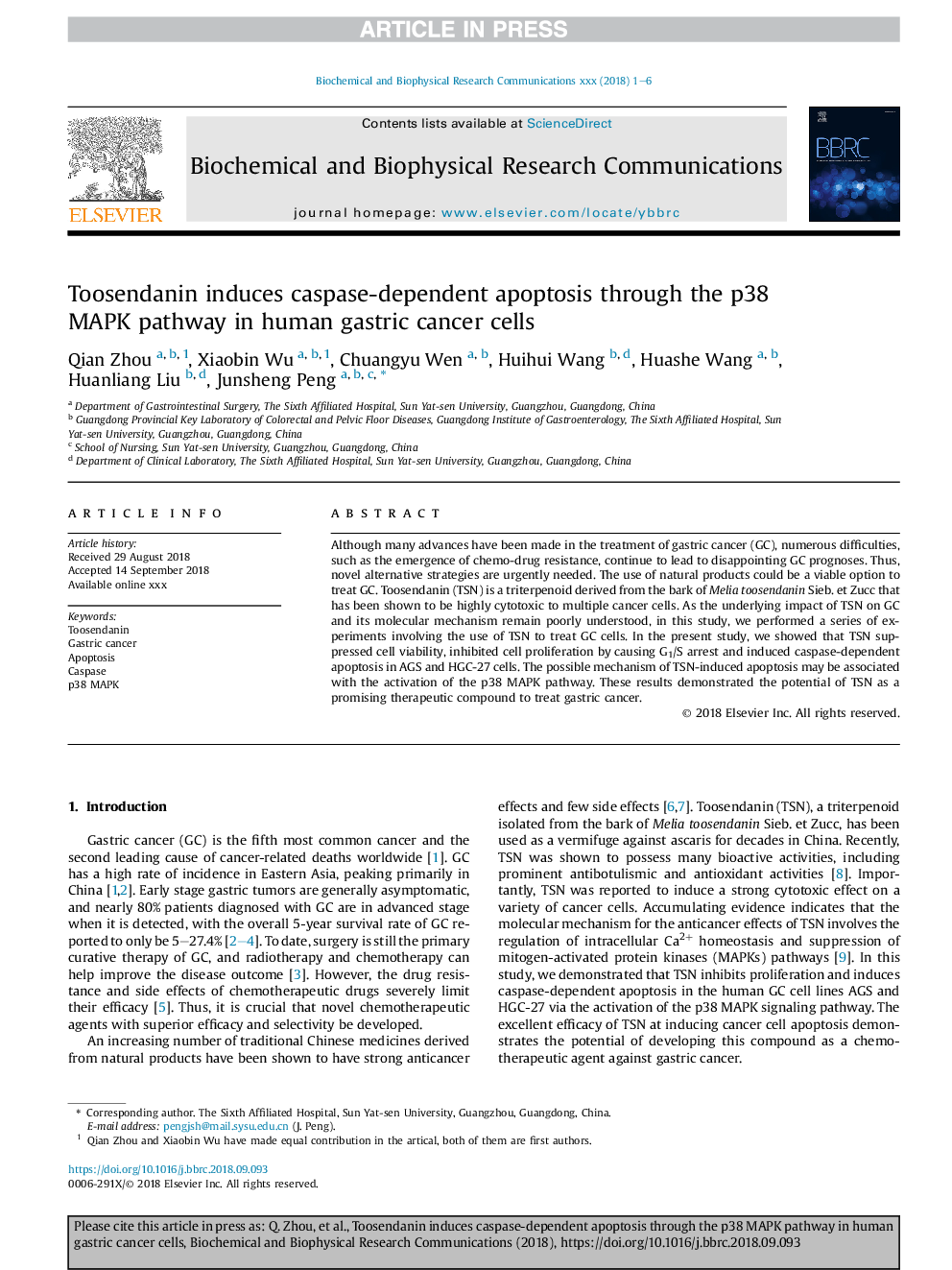| Article ID | Journal | Published Year | Pages | File Type |
|---|---|---|---|---|
| 11001802 | Biochemical and Biophysical Research Communications | 2018 | 6 Pages |
Abstract
Although many advances have been made in the treatment of gastric cancer (GC), numerous difficulties, such as the emergence of chemo-drug resistance, continue to lead to disappointing GC prognoses. Thus, novel alternative strategies are urgently needed. The use of natural products could be a viable option to treat GC. Toosendanin (TSN) is a triterpenoid derived from the bark of Melia toosendanin Sieb. et Zucc that has been shown to be highly cytotoxic to multiple cancer cells. As the underlying impact of TSN on GC and its molecular mechanism remain poorly understood, in this study, we performed a series of experiments involving the use of TSN to treat GC cells. In the present study, we showed that TSN suppressed cell viability, inhibited cell proliferation by causing G1/S arrest and induced caspase-dependent apoptosis in AGS and HGC-27â¯cells. The possible mechanism of TSN-induced apoptosis may be associated with the activation of the p38 MAPK pathway. These results demonstrated the potential of TSN as a promising therapeutic compound to treat gastric cancer.
Related Topics
Life Sciences
Biochemistry, Genetics and Molecular Biology
Biochemistry
Authors
Qian Zhou, Xiaobin Wu, Chuangyu Wen, Huihui Wang, Huashe Wang, Huanliang Liu, Junsheng Peng,
